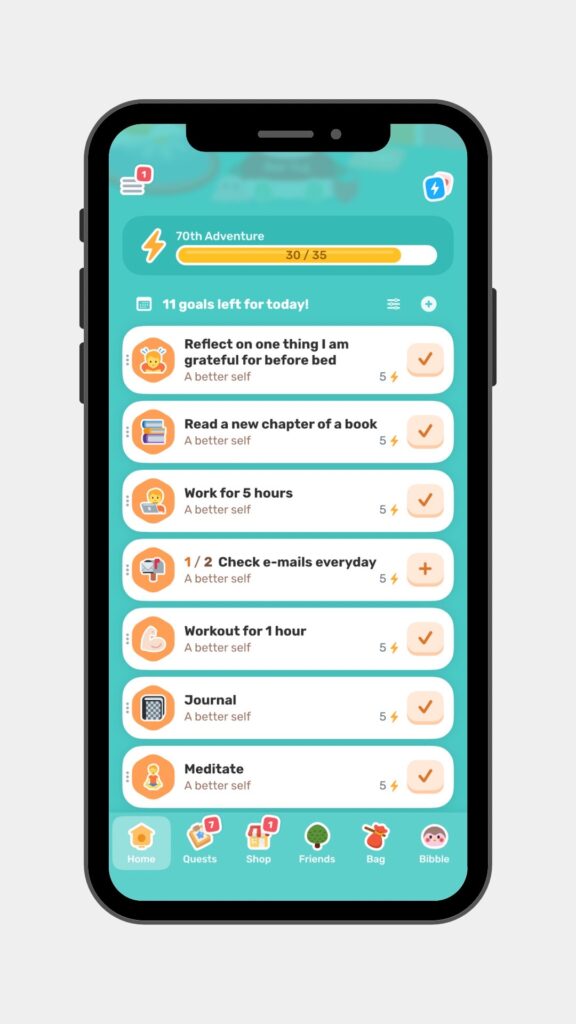
By Shradha Sinha – July 21, 2024
Table of Contents
Caught in Self-sabotage? Time for a change!
Ever feel like you’re just coasting through life, wondering how to make that leap from average to amazing? Do you see everyone else transforming their lives while you remain stuck? Trust me, I get it. It’s frustrating and disheartening. You want to break free from the monotony and achieve something extraordinary, but you’re not sure where to start. It feels like you’re watching from the sidelines as others unlock their potential and live their dreams. But here’s the truth: it’s never too late to take control and make a change. If you want to become your best self, you need to let go of certain habits that are holding you back.
I’ve battled most of these habits myself, and through my 22 years of life and countless experiences, I’ve learned a powerful truth: to be your best self, you need to break free from these five bad habits. Otherwise, you’re completely wasting your potential. It’s a revelation that has taken me a long time to embrace, but now I want to share it with you. Ready to transform your life? Let’s dive into the five bad habits you need to quit to go from average to AMAZING.
Understanding the Power of Habits
Habits, those little routines we perform almost subconsciously, wield immense power over our lives. They’re like autopilot settings that can either guide us towards success or keep us stuck in mediocrity. When these habits are helpful, they can propel us forward, shaping our journey to becoming our best selves. But if they’re unhelpful, they act as invisible shackles, holding us back and hindering our progress. That’s why letting go of unhelpful habits is crucial for personal growth, allowing us to break free from limitations and reach our full potential.
Habit 1: Procrastination

Procrastination is the silent productivity killer. It’s the art of delaying tasks that need to be done, often until the last possible moment. I struggled with this habit throughout my entire life as a student, always convincing myself with the excuse that “I work better under pressure”. Sure, it seemed to justify delaying work until the eleventh hour, but in reality, it only made things worse. This habit not only hampers our efficiency but also skyrockets our stress levels and takes a toll on our mental well-being.
As we grow older, the consequences of procrastination become even more pronounced. We find ourselves stuck in a relentless cycle of constantly struggling to finish tasks, leaving little time for ourselves and disrupting any chance of a proper routine. It’s a tough lesson I learned the hard way and breaking free from this cycle is essential for a healthier, more balanced life.
Effects on Productivity and Mental Health
When we procrastinate, we’re essentially putting off our responsibilities, leading to a buildup of tasks that can feel overwhelming. This often results in poor quality work and missed opportunities. I’ve experienced this firsthand—endless nights of cramming, the sinking feeling of rushing through assignments, trying to cover an entire syllabus within a week, knowing very well that it’s utterly foolish and then regretting not having started earlier. It might seem like a rite of passage, something every student does, but these little actions foster a habit that can derail our lives. The constant stress of looming deadlines took a toll on my mental well-being and left me burned out.
We all need time to recharge and when procrastination robs us of that, our productivity and health suffer even more. Sure, life can be stressful, but procrastination is neither the answer nor the solution. The sooner we acknowledge this behaviour, the better our chances of breaking free from it because time doesn’t wait for anyone, and the more we take it for granted, the more stress we breed.
Tips to Overcome Procrastination
Breaking free from procrastination is challenging, but it’s definitely possible. Start by setting clear, achievable goals. Divide your tasks into smaller, manageable chunks and prioritise them. Personally, I’ve found using apps like TickTick and Finch to be incredibly helpful.
TickTick’s Eisenhower Matrix is my go-to for inputting all my main tasks that are urgent and important for the whole month. It acts as a reliable reminder, ensuring I complete tasks within the set deadlines. It’s not just a calendar app—it’s a good productivity tool.

Calendar & Task Management App
For those everyday tasks and self-care, I turn to Finch. Its super cute and fun interface makes it a joy to use. Whether it’s reminding me to drink water, complete a project or take a moment to reflect on one thing I am grateful for before bed, Finch keeps me on track with a touch of whimsy.

Self-care App
Additionally, I’ve started using the Apple’s Notes app a lot this year to keep track of my list of yearly and monthly goals. Having everything written down in one place helps me stay organised and focused on what I want to achieve.
And here’s a tip that truly transformed my approach: the popular two-minute rule. If a task takes two minutes or less, tackle it immediately. This has significantly reduced the pile-up of small tasks and kept my to-do list manageable.
These strategies have not only helped me stay on top of my responsibilities but have also given me more time to relax and enjoy life. Remember, small changes can lead to big improvements in managing procrastination effectively.
Habit 2: Negative Self-Talk

Negative self-talk is that inner critic constantly telling you that you’re not good enough. It’s the voice that magnifies your flaws and undermines your confidence. While I do have my own share of insecurities, I haven’t typically been prone to negative self-talk. On the other hand, I’ve observed many people around me fall into this trap. It’s heart-wrenching to witness friends and loved ones beat themselves up over minor mistakes or perceived shortcomings.
We all have insecurities and it’s normal to acknowledge our weaknesses. However, that doesn’t mean it’s okay to berate ourselves or constantly think we’re incapable or unlucky. This mindset often becomes an excuse to hide from the real world and avoid facing problems head-on, trapping us in a cycle of self-doubt and inaction.
How It Affects Self-Esteem and Performance
When you constantly berate yourself, it chips away at your self-esteem and can lead to a lack of confidence. I’ve seen how this can prevent people from taking risks or pursuing opportunities, ultimately stifling their growth. Confidence is an attitude that builds up over time with the help of facing our fears, insecurities and obstacles in life. Negative self-talk robs us of that chance to build confidence. Every challenge seems insurmountable. This not only affects our performance but also our overall sense of self-worth. It’s like living under a dark cloud that never lifts, making everything seem more daunting than it really is.
Strategies to Shift to Positive Self-Talk
Shifting from negative to positive self-talk starts with becoming aware of your thoughts. Challenge any negative statements and replace them with positive affirmations. I’ve already explained how to deal with negative thought patterns in my first blog post, “Mind Over Matter: Harnessing the Power of Mindset for Health and Well-being”. If you struggle with negative thoughts that lead to negative self-talk, you might find it helpful.
Even though I’ve mentioned the importance of affirmations several times on Savvy Lifestyle 24, I still stand by it wholeheartedly. Positive affirmations are incredibly powerful, especially on those rough days when you feel hopeless and incapable. While they may not solve all your problems, they can help you push through the day and maintain faith in yourself.
Surround yourself with supportive people who uplift you and practice gratitude daily to focus on your strengths and achievements. These small changes can make a big difference in how you perceive yourself and your abilities. Know that you have the power to change your inner dialogue, and in doing so, you can transform your life.
Habit 3: Overcommitting

Overcommitting is the tendency to take on more tasks than you can handle. While it might seem like a good idea to say “yes” to everything, it often leads to burnout and diminished productivity. When I was younger, I used to commit to a lot of things because I like being a multitasker. At 17, during my class 12 year, I began my journey as an anchor and around the same time, I joined the gym again. Being a science student, my life became pretty eventful. But here’s the thing, I was already struggling to manage my studies during class 11, and with the added commitments in class 12, my academics and health deteriorated even further.
I was juggling back-to-back classes, rehearsing for shows and hitting the gym later, and it quickly became too overwhelming. My academic performance began to decline as I struggled to keep up with my studies. My scores, which had once been a point of pride, started to drop drastically. The constant rush left me with little time for revision or proper study, and this clearly reflected in my grades.
Additionally, the stress of trying to manage everything took a toll on my health. I joined the gym primarily to address body insecurities focusing on getting rid of my lower belly pooch and achieving a “bigger butt”. Despite lifting weights and engaging in intense workouts, I didn’t see the results I hoped for. My fixation on unrealistic body goals overshadowed my overall physical health, and my procrastination only exacerbated the problem, causing last-minute stress and further draining my energy. Looking back, I only wish I had been gentler with myself and my body. Committing to lighter exercises and healthier lifestyle choices would have been more beneficial than overburdening myself.
Consequences of Taking on Too Much
When you’re overcommitted, your attention is scattered across too many tasks, leading to subpar performance in some areas. For example, while I excelled in anchoring, my academics and overall well-being suffered. Balancing back-to-back classes, rehearsals and gym sessions left me spread too thin. My focus was so divided that I couldn’t give my best to every area. My academic performance faltered, and I felt the strain on my health and daily life.
This experience taught me that overcommitting can lead to more harm than good. Taking on too much at once can be counterproductive, impacting both our mental and physical health. Additionally, the constant rush and lack of a proper routine make everything even more stressful. Without a balanced approach, one can be left feeling exhausted and stressed, unable to recover and recharge. Poor time management only worsens the situation, leading to feelings of being overwhelmed and out of sync.
Mastering Boundaries and Prioritisation
Finding balance in life often boils down to setting clear boundaries and prioritising what truly matters. Start by being selective—say “no” to tasks that don’t align with your goals. Focus your energy on what brings you the most satisfaction and value. Procrastination might lure you in, but neither rushing nor delaying tasks will get you ahead. Instead, try time blocking to allocate specific periods for different tasks. This year, I’ve switched things up by keeping a detailed to-do list and carving out time for relaxation, fun and rejuvenation.
If you’re in your teens, focus on one task at a time and avoid the trap of rushing. Embrace what excites you, but remember not to overburden yourself. Trust me, overworking isn’t going to help. Enjoy the process and remember to breathe.
As for adults, keeping balance is vital. Although I still have hectic days and juggle multiple tasks, incorporating rest days and time for enjoyment has made a world of difference. My physical and mental health has improved since I started prioritising what truly matters and learning the difference between productive work and simply being busy. Engaging in activities that promote health, career growth and personal care, while also allowing time to reset and recharge, has become a game-changer.
Life is about embracing the journey and not just racing to the finish line. Be open to new experiences and be kind to yourself along the way.
Habit 4: Seeking Perfection

Perfectionism is the unrealistic pursuit of flawlessness. While striving for excellence is commendable, the need for everything to be perfect can be paralysing. This is a habit I still struggle with. In fact, before posting this blog post, you have no idea how many times I read a single paragraph until it sounded right in my head—at least 10-20 times. I was actually supposed to publish this post yesterday, but I was stuck perfecting the second part of the blog post until midnight and was eventually unable to post it on time. I even had to update my calendar due to this minor delay. Sure, the quality of my work improves because I don’t settle for anything less than my best, but I often lose track of time and end up running behind schedule as I try to perfect everything. The worst part? Most of the time, I feel like my work isn’t good enough, and I end up redoing the same thing over and over again. This has been a lifelong struggle for me, and although I’ve seen some improvements by setting specific deadlines to keep myself from getting stuck in the cycle of perfectionism, there’s no denying I still struggle with it.
How Perfectionism Hinders Progress
When you’re fixated on perfection, you may spend excessive time on minor details and delay completion. I know this all too well. I would give so much attention to the tiniest aspects of my work, like tweaking the phrasing of a sentence repeatedly or adjusting the layout of a document to ensure it’s just right. These actions, while seemingly small, can eat up significant amounts of time and lead to missed deadlines and opportunities.
The fear of making mistakes can also prevent you from taking necessary risks. Most people don’t do things because they’re afraid it won’t turn out perfect or as everyone else expects it to be. This fear has left many feeling insecure and incapable of achieving their goals. For example, I’ve often hesitated to publish a post because I wasn’t entirely satisfied with it, even if it was more than adequate. This perfectionist mindset can stifle creativity and hinder progress, as you’re constantly second-guessing yourself and afraid to take the leap.
Embracing Imperfection and Progress
Navigating the path to embracing imperfection is an ongoing challenge for me. While I’ve made progress, I still grapple with the urge to perfect every detail. Accepting mistakes as part of the process is crucial, and I’m learning to focus on progress rather than unattainable flawlessness. By setting realistic standards and celebrating small achievements, I’m working on building confidence and maintaining momentum.
Setting specific deadlines is a strategy that continues to help me, although it remains a challenge. These deadlines push me to complete tasks even when they aren’t perfect, marking a shift from my old habit of endlessly tweaking and adjusting. I find myself still spending hours, sometimes late into the night, perfecting each detail of my work. This approach, while improving the quality of my output, often results in delays and frustration. Deadlines remind me that completing a task to the best of my ability within a set timeframe is more effective than getting stuck in a cycle of revisions.
I’ve also noticed that when I’m in control of a project, I might try to manipulate my time and routine to fit in more tasks or refine details further. However, this strategy often backfires, leading to increased stress and diminished productivity. It’s a reminder that while managing time effectively is important, being overly rigid or constantly adjusting my routine can undermine my well-being and overall effectiveness.
Embracing imperfection is a continuous journey for me, but acknowledging this struggle and making ongoing efforts to manage it has been incredibly rewarding. If you’re someone like me who struggles with perfectionism, know that nothing in this world is or can be perfect— an advice I need to take to heart myself. We both need to understand that progress, rather than perfection, is the goal, and moving forward and growing through the process is what truly matters.
Habit 5: Comparing Yourself to Others

“Comparison is the thief of joy”. As a teenager, I often found myself comparing my body to that of others, which only deepened my insecurities. I remember scrolling through social media, seeing images of people who seemed to have the perfect body, and feeling a growing sense of dissatisfaction with my own appearance. My desire to fit in and be accepted by others often led me to prioritise their expectations over my own needs, and the fear of judgment made me a people pleaser, always trying to be someone I thought others would admire.
This personal experience reflects a broader truth: everyone’s journey is unique, and when we measure ourselves against others, we overlook our own gifts and strengths. This can again undermine our confidence and distract us from our own goals, causing us to lose sight of what truly matters and always seek external validation. Instead of focusing on personal growth and self-acceptance, comparison can leave us feeling stuck and disheartened.
How Comparison Steals Joy and Motivation
Remember when I mentioned joining the gym again in class 12? Well, that wasn’t the first time I tried; I started when I was 16, right after my class 10 board exams. Back then, I was already dealing with major insecurities about my body and overall appearance, but I couldn’t keep up with the gym for too long. Having attended a girls’ school, I was not very comfortable around boys. When I eventually began interacting with them during secondary school, I was often preoccupied with how they perceived me and my body. This preoccupation, combined with the relentless comparisons on social media, made me incredibly insecure. All I wanted was to meet the unrealistic body ideals perpetuated by society and the media.
The negative impact of this constant comparison was profound. It stole my joy and motivation. Instead of focusing on my health and working out to build strength and improve my overall well-being, I fixated on what I believed were flaws, trying to mould myself into an ideal that ultimately felt like a pointless pursuit. This struggle with body image issues consumed my thoughts and energy, leaving little room for self-love and acceptance.
Comparison can take many forms. While my struggle was with body image, others might compare their careers, relationships or achievements. This constant comparison can lead to feelings of inferiority and bitterness. People may become envious, focusing more on what others have rather than appreciating their own lives. In extreme cases, this envy can drive individuals to manipulate or undermine others, attempting to elevate themselves at the expense of others.
Focusing on Your Own Journey
I overcame the habit of comparing myself to others and most of my body insecurities with a simple mindset change. Ever since I reached my 20s, I have started being gentler with myself, just as I wished I had been during my teens. Surrounding myself with supportive and like-minded people has also been a key part of this transformation. Their encouragement and positive influence have helped me stay focused on my personal growth, and this has improved my life for the better. I’ve explained how this mindset shift works in my blog post, “Shift Your Focus: Work Out to Appreciate Your Body, Not to Fix It!”. If you struggle with similar body image issues, I believe this change can help you.
I’ve also redefined my social media experience. By following accounts focused on body positivity and intentional living, I’ve turned social media into a source of inspiration rather than insecurity. One enlightening idea from my favourite YouTuber, Tam Kaur, has been particularly impactful. She suggests that when we see others achieving things or having things we desire, we should view it as inspiration rather than competition. By seeing these achievements as proof that we too can reach our goals, our envy fades, and we become more focused on our own aspirations.
Instead of letting comparison drain your energy, channel it into something more productive. Use it as an opportunity to question the kind of life you want for yourself and identify actionable steps toward that vision. Focus on setting and pursuing goals that align with your values and desires. By redirecting the energy from comparison into personal growth and self-improvement, you can cultivate a sense of purpose and fulfilment.
Last but not least, appreciate your progress and achievements. Remind yourself that everyone has their own path, and success looks different for each person. Remember, everyone’s timeline is different, and everything happens at its own pace. Stop comparing yourself to others and appreciate the unique journey you are on. Embrace your individuality, and you’ll find more joy and satisfaction in your life.
The Long-Term Benefits of Quitting these 5 Bad Habits

Imagine waking up each morning feeling lighter, clearer and ready to tackle the day with a newfound zest. Quitting these 5 bad habits is like shedding a heavy coat on a warm, sunny day—you instantly feel the difference. Not only does breaking free from these habits reduce stress, anxiety and depression, but it also sets you on a path to better physical health. Think of the joy in adopting healthier behaviours that keep chronic diseases at bay. It’s about taking control, making choices that your future self will thank you for, and stepping into a version of yourself that’s vibrant and full of life.
But the journey doesn’t stop there. Quitting these habits is a stepping stone towards becoming someone who is consistent, resilient and confident. It’s about appreciating your imperfections and recognising that you are always a work in progress. The ultimate goal isn’t just to quit these bad habits and become amazing overnight. It’s about striving to be better each day, holding yourself accountable and acknowledging the behaviours you want to change. This process fosters a sense of fulfilment and happiness, deepening your connections with others and enhancing your overall well-being. Remember, the only person you’re competing with is yourself, and each positive change you make brings you closer to the best version of you.
A Message to the Readers
Hello, lovely readers!
Thank you for taking the time to read this post. I hope it inspires you to recognise and tackle any of these bad habits you may be struggling with. Remember, breaking free from these habits is a step towards living an amazing life, filled with joy, confidence and potential. SL 24 is here to motivate and support you. If you ever feel stuck or need a bit of encouragement, don’t hesitate to reach out. Seeking help is a sign of strength, not weakness.
As Lao Tzu wisely said, “The journey of a thousand miles begins with one step”. Take that first step today towards a better you.

Shradha Sinha, founder of SL 24, is a System & Process Specialist at Seven01 and an Emcee from Shillong, Meghalaya – India. Currently, she is enthusiastically exploring the world of digital creation. Through her platform, she warmly invites everyone to join her on this new journey of personal growth and discovery.
For any queries, visit the contact page.
Follow Savvy Lifestyle 24 on Instagram | Pinterest | Facebook
Check out Video Hub for YouTube Videos
Listen to all the Savvy Lifestyle 24 Podcast episodes here.


Have you ever considered about adding a little bbit more than just your
articles? I mean, what yyou say iis valuable and all.
However think about if yyou added some great graphics
or video cloips to give your posts more, “pop”! Your content
is excellent but with images andd clips, this blog
could undeniably be one of the best in its niche. Excellent blog!
Thank you so much for your suggestion. I do, in fact, add engaging YouTube video links and clips to my blog posts whenever it’s relevant. I appreciate your feedback, and I’ll definitely keep your idea in mind to enhance the content further with more visuals and interactive elements. Your support means a lot! <3